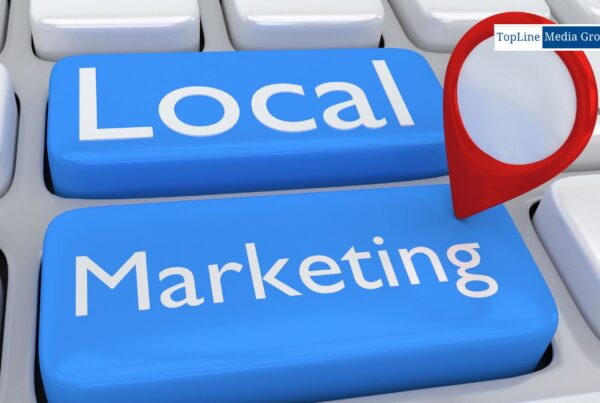In the digital age, businesses are continuously looking for ways to stand out and reach their target audience effectively.
For local businesses, this challenge can be even more pronounced, as competition from both national chains and online retailers continues to rise.
The key to success in this competitive landscape is leveraging content marketing for local business.
By creating compelling, relevant, and local-focused content, businesses can effectively engage their community, drive traffic, and boost sales.
In this article, we’ll explore how local businesses can craft and execute content marketing campaigns that speak to their audience, foster brand loyalty, and drive measurable business outcomes.
What Is Local Content Marketing?
Local content marketing is the process of creating and sharing content specifically designed to appeal to a community or geographical area.
It’s not just about promoting your products or services, but also about fostering connections with local audiences through content that resonates with their interests, needs, and values.
Whether you’re a retail store, a service provider, or an online business with a physical location, local content marketing can help you establish a meaningful connection with the community you serve.
Effective local content marketing campaigns often incorporate local events, news, community issues, and collaborations with local influencers, which makes the content more relatable and engaging for your target audience.
Why Local Content Marketing is Crucial for Local Businesses

Local businesses often face unique challenges, such as competing with larger national brands and establishing a strong presence in a competitive market.
Here are some key reasons why content marketing for local business is essential:
Increased Visibility in Local Search Results: Local content marketing helps businesses rank higher in search results, particularly in search engines like Google, which prioritize local content.
For example, when a user searches for a service or product in their area, local businesses with optimized content are more likely to appear in those results.
Building Trust and Authority: Local content marketing helps establish your business as a trusted resource in the community.
When your content addresses local issues, news, or events, it demonstrates that your business understands the community and cares about its well-being.
Attracting the Right Audience: Local businesses need to engage with people who are within a specific geographical area.
By creating content that speaks directly to local consumers, businesses can ensure they are targeting the right audience, driving traffic to their website, and ultimately increasing sales.
Encouraging Community Engagement: People love to support local businesses, and content that highlights community involvement can create a sense of connection and loyalty.
Whether you’re sponsoring a local event or sharing user-generated content, local content marketing helps establish an emotional bond between the business and the local community.
Key Components of an Effective Local Content Marketing Campaign
When developing your local content marketing campaign, there are several critical components to consider.
Here are the most important elements to include:
Local SEO Optimization
To ensure your content reaches the right audience, optimizing it for local SEO is crucial.
Local SEO is the process of optimizing your online presence to increase visibility in local search results. This includes:
Using location-specific keywords: Ensure your content contains keywords that reflect your location and the services you provide.
For example, “content marketing for local business in [City]” or “best [product/service] in [Neighborhood]” helps search engines associate your content with a specific location.
Google My Business Profile: Ensure your business has an updated and complete Google My Business profile. This is essential for appearing in Google Maps and local search results.
Location-based metadata: Use location-specific meta titles, descriptions, and tags to improve local search rankings.
Community-Centered Content
The heart of content marketing for local business is creating content that resonates with the local audience. Here’s how to do that:
Spotlight Local Events and Happenings: Write blog posts, create videos, or share social media content that highlights events or news happening in your area.
This could include local festivals, charity events, or community causes. Your audience will appreciate content that shows your involvement in their lives.
Showcase Local Collaborations: Partner with local businesses, charities, or influencers and create content around these collaborations.
For instance, if you’re a restaurant, consider creating a joint campaign with a local brewery, featuring both your businesses in blog posts or video content.
Customer Spotlights and Testimonials: Feature local customers in your content.
This not only highlights the people who support your business but also shows that you care about your customers.
Ask satisfied customers to share their stories and experiences with your business in videos, blog posts, or social media shout-outs.
Social Media Engagement
Social media is one of the most effective platforms for executing local content marketing campaigns.
Platforms like Facebook, Instagram, and Twitter allow businesses to directly engage with their local audience.
Hashtags: Use location-specific hashtags in your posts to reach a local audience. Hashtags like #LocalBusiness[City], #[City]Eats, or #[Neighborhood]Events can help increase visibility.
Engage with Local Influencers: Collaborating with local influencers can expand your reach.
These influencers have established trust with their audiences and can help promote your business to a local crowd.
Look for influencers who align with your brand and values.
User-Generated Content
Encouraging your local customers to share their own content, such as reviews, photos, or videos of your products or services, is an effective way to build trust and authenticity.
User-generated content is powerful because it provides social proof and helps create a sense of community.
Customer Reviews: Encourage your satisfied customers to leave positive reviews on platforms like Google, Yelp, or Facebook.
Good reviews build trust and can directly influence potential customers to visit your business.
Social Media Contests: Running local social media contests or giveaways can increase engagement while providing valuable exposure to your business.
Encourage participants to share their experience or tag friends in posts for more chances to win.
Content Formats That Work for Local Campaigns
Content marketing isn’t just about blogs.
Depending on your audience, there are several other formats you can use for local content marketing:
Videos: People love video content, especially when it’s relevant to their community.
Create videos that showcase your local expertise, such as tutorials, behind-the-scenes looks at your business, or event highlights.
Infographics: Infographics that include local data or statistics can capture attention and are easily shareable.
Interactive Content: Polls, quizzes, and surveys are a great way to engage with your local audience and gather valuable feedback.
Email Marketing
Email marketing remains a powerful tool for local businesses to communicate directly with their audience.
Develop a regular email newsletter that provides local content such as promotions, news, and updates on upcoming community events.
Personalize your emails to reflect your audience’s preferences and location, ensuring your content is relevant and engaging.
Measuring the Success of Your Local Content Marketing Campaigns
To ensure your local content marketing campaigns are effective, it’s essential to track your results.
Here are a few metrics to monitor:
Website Traffic: Use tools like Google Analytics to track how much traffic your local content is driving to your website.
Engagement Rates: Monitor likes, shares, comments, and other forms of engagement on your social media platforms.
Lead Generation and Sales: Track how your content impacts lead generation and sales.
If you’re running promotions or calls to action, measure how many conversions you receive from your content.
Local Rankings: Use local SEO tools to see how your content is ranking in local search results.
Conclusion
Content marketing for local business is an invaluable tool that can help businesses of all sizes thrive in their communities.
By creating localized, community-focused content that resonates with your audience, businesses can drive traffic, boost sales, and build a loyal customer base.
The key to success lies in crafting authentic content, optimizing for local search, and engaging directly with your community through social media, user-generated content, and partnerships.
By following these steps and consistently refining your local content strategy, your business can harness the full potential of content marketing to stand out in a crowded marketplace and grow your presence in the local community. For expert guidance on crafting a winning content strategy, contact Topline Media Group.
FAQ’s
1.What is local content marketing?
Local content marketing refers to creating and sharing content that is specifically designed to appeal to a local audience. This includes focusing on topics, events, and issues that are relevant to a specific geographic area, helping businesses build a stronger connection with their community and increase local visibility.
2. Why is local content marketing important for my business?
Local content marketing is essential because it helps businesses stand out in a competitive market, especially against larger national brands. By focusing on local events, trends, and consumer interests, businesses can drive more targeted traffic, build community trust, and ultimately boost sales.
3. How can I improve my local SEO with content marketing?
To improve local SEO, include location-specific keywords in your content, such as your city or neighborhood. Optimize your website with local meta descriptions and titles, and create Google My Business listings to appear in local search results. Additionally, using local backlinks and mentioning local events or businesses in your content can further enhance local visibility.
4. What types of content work best for local marketing?
Effective local content includes blog posts, social media updates, videos, customer testimonials, and event promotions. Focusing on local news, issues, and partnerships with other local businesses can make your content more relevant and engaging to your target audience.
5. How can social media help in local content marketing?
Social media is a powerful platform for connecting with a local audience. You can use location-based hashtags, tag local businesses or landmarks, and share content that highlights community events. Social media also enables direct interaction with local customers, fostering deeper engagement.
6. Should I collaborate with local influencers for my content campaigns?
Yes, collaborating with local influencers can significantly boost the effectiveness of your local content marketing. These influencers already have established trust and a local following, which can help extend the reach of your content and attract more local customers to your business.
7. What role does user-generated content play in local marketing?
User-generated content (UGC) plays a vital role in local marketing as it provides social proof and builds trust within the community. Encouraging local customers to share their experiences, photos, and reviews helps create a sense of belonging and increases the credibility of your brand.
8. How can I measure the success of my local content marketing efforts?
You can measure success by tracking website traffic, social media engagement (likes, shares, comments), lead generation, and sales. Use tools like Google Analytics to track how your local content is performing in search results, and monitor how it impacts customer actions, such as in-store visits or online purchases.
9. How often should I post local content?
Consistency is key in local content marketing. Posting at least once a week can keep your audience engaged and informed. However, it’s essential to tailor the frequency to your business’s specific goals and capacity. Ensure the content is high-quality and relevant rather than focusing solely on quantity.
10. What are some common mistakes in local content marketing?
Common mistakes include neglecting local SEO optimization, creating content that isn’t tailored to the community, not engaging with local influencers or customers, and failing to track or analyze the performance of campaigns. Another mistake is using generic content that doesn’t resonate with the local audience.




